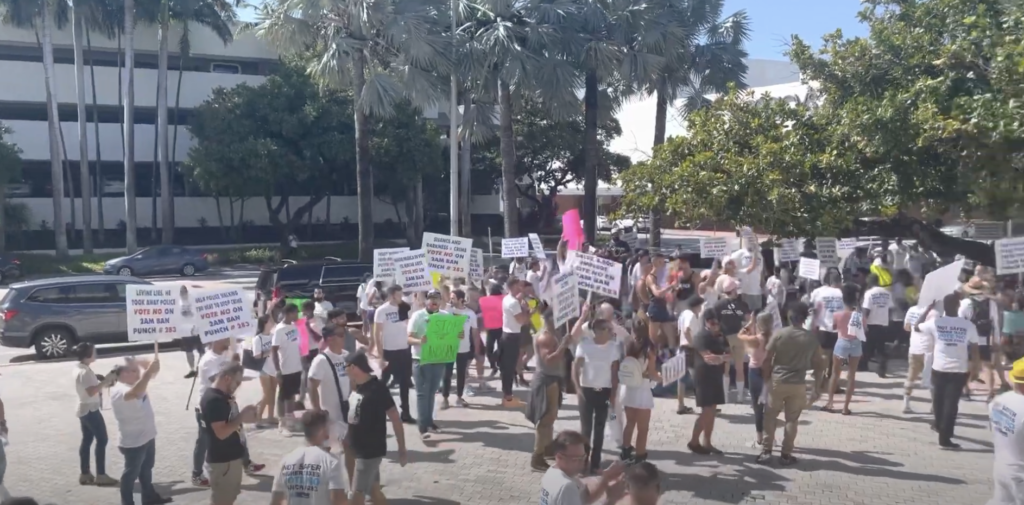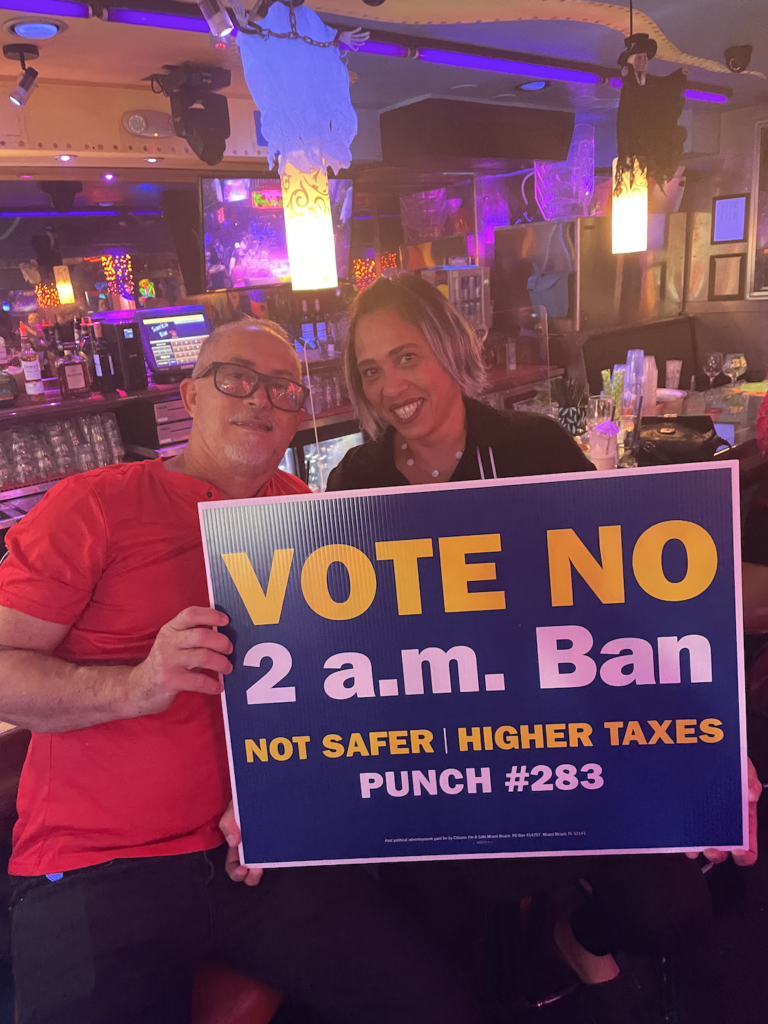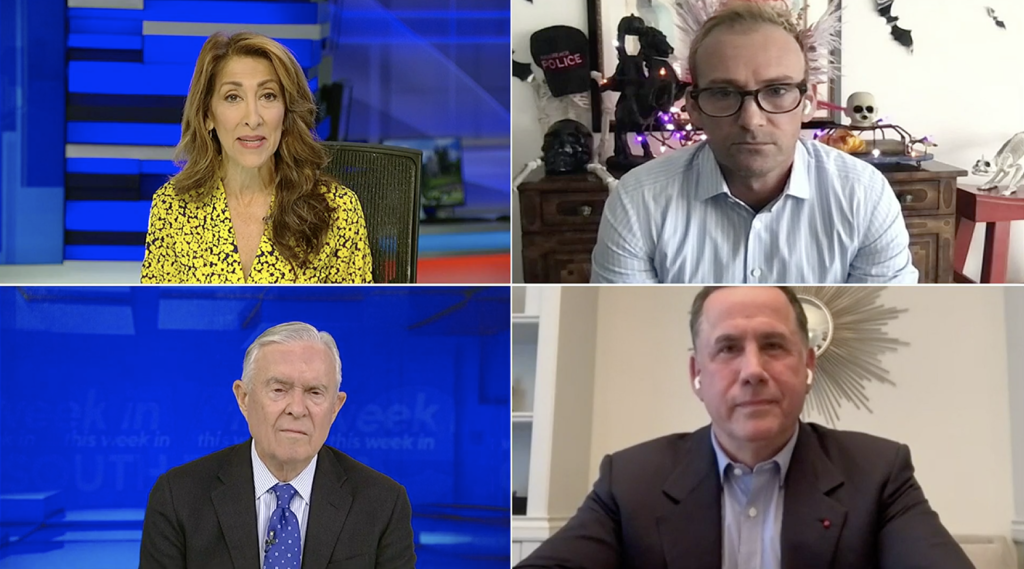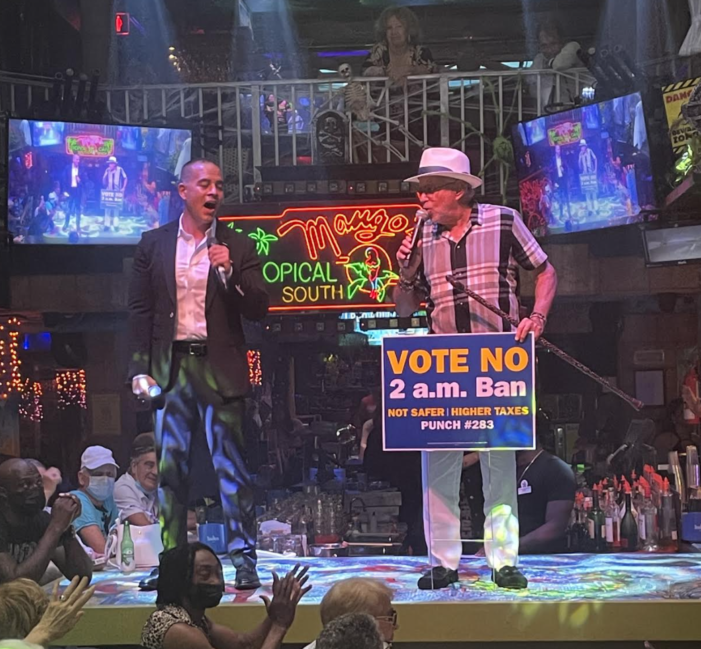Business owners, politicians, community leaders, hospitality workers, waitresses, bartenders, drag queens, seniors and the families of hundreds of service workers have come out against a Miami Beach ballot question that could rollback the last call for alcohol sales from 5 a.m. to 2 a.m.
Opponents say there is no indication crime is worse in those three wee hours. In fact, crime rose during the pandemic when the city imposed a midnight curfew because customers moved from the venues at Ocean Drive and Lincoln Road to private parties at AirBnB rentals in residential neighborhoods. And that tragic murder of a young father at a South Beach sidewalk caf´é happened in broad daylight at 6:30 p.m.
Critics are also certain the last call rollback would effectively shut down the city’s world famous nightlife — an economic disaster estimated at $40 million in lost tax revenue.
Read related: 2 AM bar ban in Miami Beach could be a real estate con to benefit developers
“We contribute hundreds of millions of dollars to the economy of Miami Beach and we help keep our residents property taxes down,” David Wallach, owner of the iconic Mango’s Tropical Café, said Wednesday over a bullhorn after almost 200 people marched to City Hall in protest.

“People fly in from all over the United States right now and soon again from all over the world to enjoy Miami Beach, which includes entertainment,” Wallach said, adding that 23,000 hotel rooms are going to be harder to fill. “Miami Beach has stood for entertainment since Carl Fisher began in 1919.”
Many in the crowd were service workers, to whom this is a slap in the face after the last 18 months of COVID-19 job and income losses.
“My family is just now recovering from lost wages due to the pandemic and now the city says too much crime is happening during the day, so they want to close down my job at night? It makes no sense,” said Breinna Bonds, a bartender at Mango’s. “Workers are not the cause of the crime. I feel like we’re being blamed for crime, when really the city should be doing a better job of cleaning up the streets.”
Mario Trejo, a bartender at Twist, said he is busiest between 10 p.m. and 5 a.m. “The bar is a safe haven and people come to Twist to have fun. We aren’t the cause of the disorder on the streets, but the City wants to put me out of work instead of coming up with a real solution to crime,” he said.
Read related: Miami Beach election ramps up with mostly familiar faces in the running
Commissioner Michael Góngora, who voted against putting the measure on the ballot, came out of Wednesday’s commission meeting during a break to show the demonstrators some love.
“It’s being sold as a crime stopping solution and it’s not. It’s deflecting from real solutions like more police, cameras and better programming,” Góngora said, explaining that the city can focus on cultural events that bring families instead of the Spring Break bunch.

“This is driven by their desperation to tell the public that they did something about the crime,” Góngora told Ladra.
State Rep. Michael Grieco, a former city commissioner, agrees and said on WPLG Local 10’s This Week In South Florida that the city has alternatives, like community policing and opening up Ocean Drive, which has been closed to vehicular traffic since May of last year, and blamed city leaders.
“It’s a problem that was created by City Hall and I feel like, on some level, it was done on purpose. It’s like demolition by neglect,” Grieco, who lives in South Beach, said. “You don’t take care of the crime, you don’t take care of the street. In fact, you created your own street party…and you want to blame it on business leaders who have been here for decades.”
Read related: Mark Samuelian wins in Miami Beach as challenger loses in court, disqualified
Former Mayor Philip Levine, who is pushing the last call rollback — and also owns interest in property across the causeway in Wynwood, fyi — sounded a little racist when he said the city had to attract a different kind of tourist. And he called Ocean Drive a terminal disease.

“The cancer, the tumor of our city is Ocean Drive. It used to be the area that was our renaissance area,” Levine said. “Today it’s like looking at Falujah. It’s a danerous place.
“Unfortunately, what we have been putting out across the country and the world is that we are an all night party, do as you please environment. That’s our signal to the world,” Levine said. “The reality is we have to change the signal. And the signal has to be that we’re taming the party.”
Said Grieco: “There’s really no nexus between someone getting shot or robbed at 6 o’clock in the afternoon and someone having a mojito at 3 in the morning.”
The street closure is the only thing that’s really changed since the voters rejected a 2 a.m. last call referendum in 2017 by a whopping 65%. Ladra now wonders if closing Ocean Drive to traffic was strategic.

